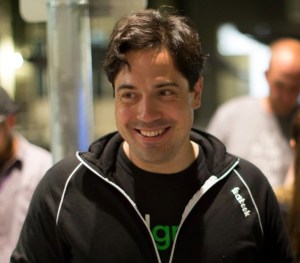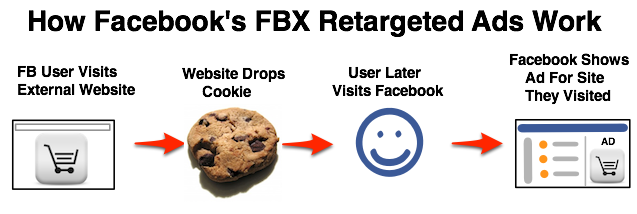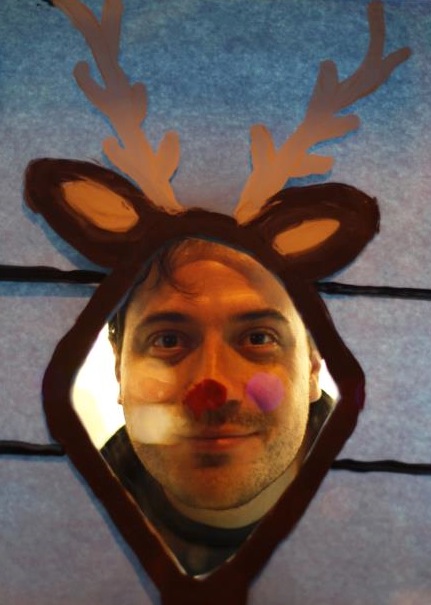“FBX was my baby that I staked everything on. We shipped it fast, scaled it up, and now the baby talks and can walk to school, but I don’t feel I need to babysit it,” says Antonio Garcia-Martinez, product director of Facebook’s ad exchange who announced he’s leaving the company today. After selling his company AdGrok to Twitter, then defecting to Facebook two years ago, Antonio deserves a vacation.
“‘To my friends: my work is done. Why wait?’ – George Eastman, suicide note” is how Garcia started his customary goodbye post on Facebook today. But I wanted the deeper story, and he agreed to grant me an interview.
For starters, Garcia tells me “I’m still totally long on Facebook as a company. Anyone who bets against Facebook probably deserves to lose their money.” So while many high-ranking Facebookers have departed in the year since the IPO, he doesn’t want his exit perceived as a sign that Facebook is losing steam.
It was the company’s potential to change the world and its hacker culture that attracted him the in the first place. After attending UC Berkeley, Garcia did a stint on Wall Street at Goldman Sachs. His Facebook profile describes his position there as “Pricing quant on the corporate credit-default swap desk. Yes, I was part of that whole mess.” The financial sector implosion led him to Adchemy, where he’d develop the chops to start his own ad tech company, AdGrok.
The startup helped businesses automate Google AdWords selection and bidding, and was accepted to Y Combinator. Eventually, the young CEO accepted a $10 million acquisition bid from Twitter, but it didn’t prove a good fit for Garcia. Facebook jumped at the chance to poach him and he became the social network’s first product manager of ad targeting.
 Garcia-Martinez tells me it’s these kinds of talent deals that keep Facebook feisty. “They acqhire or acquire lots of startup CEOs. They want that ‘crazy startup, do whatever-the-fuck it takes to get it done, no fear, maybe slightly abrasive and aggressive DNA. If you’re a small startup considering selling your company, there’s definitely far worse places to work than Facebook,” he tells me. While great people that joined Facebook the startup are leaving, they’re being replaced with great people who know they’re going to work for a big company. Antonio says “at the Facebook engineering level are some of the smartest people I’ve ever worked with.”
Garcia-Martinez tells me it’s these kinds of talent deals that keep Facebook feisty. “They acqhire or acquire lots of startup CEOs. They want that ‘crazy startup, do whatever-the-fuck it takes to get it done, no fear, maybe slightly abrasive and aggressive DNA. If you’re a small startup considering selling your company, there’s definitely far worse places to work than Facebook,” he tells me. While great people that joined Facebook the startup are leaving, they’re being replaced with great people who know they’re going to work for a big company. Antonio says “at the Facebook engineering level are some of the smartest people I’ve ever worked with.”
Eventually he found the project that would define his time at Facebook: FBX. At the time, Facebook’s ads were firmly stuck in the demand generation part of the purchase funnel. The company knew who you were and what you liked, but not what you wanted to buy next. Facebook Exchange would change that. In his goodbye post, he writes of “building an ad exchange with three engineers in one frenetic month” — a serious feat.
In June 2012, FBX began public testing. It let Facebook advertisers target users based on cookies dropped by websites they’d visited. If you almost booked a flight to Hawaii but didn’t pull the trigger, FBX could hit you with ads for discounted Hawaii flights and hotels the next time you visited Facebook. Facebook finally knew your purchase intent, and could sell it for high rates that companies would pay out of budgets reserved for retargeting.

“It is working very well. No question it’s been a success for Facebook,” Garcia tells me. And ad platform data and interviews back him up. The FBX ads Antonio willed into being delivered big returns and had ad platforms betting their businesses on Facebook.
Yet we’re not seeing Facebook doubling down on FBX as I would have expected, and perhaps that’s the real reason Garcia is heading out. Right now, FBX doesn’t work at all on mobile, which seems like a huge miss considering that’s now where the majority of Facebook’s engagement is. FBX retargeting data can’t be combined with standard Facebook biographical targeting, either. There are privacy concerns with that, but if Facebook was really committed to FBX, I think they would have been hammered out by now.
As is, FBX is immature, and if Facebook isn’t going to apply the resources to help it grow up, I can understand Antonio’s desire not to play nanny.
Regardless of the exact reasons for his departure, it was time for Antonio to go galavanting. If you’ve met him or follow him on social media, you know he’s an adventurer who loves fast cars and tall mountains. He writes, “What comes after? Probably a few months in either forest, ocean, or desert. And then another ride on that startup roller coaster that got me here in the first place.”
 As for what kind of problem he’ll tackle, he says it’s “not necessarily going to be in ad tech. It’s been four to 5 years [in that space] which is pretty long by my ADD standards.” He cites Cloudera founder Jeff Hammerbacher’s popular quote: “The best minds of my generation are thinking about how to make people click ads…That sucks.” Instead, he tells me, “My next thing could be something in hardware. It’s never been easier to turn bits into atoms.”
As for what kind of problem he’ll tackle, he says it’s “not necessarily going to be in ad tech. It’s been four to 5 years [in that space] which is pretty long by my ADD standards.” He cites Cloudera founder Jeff Hammerbacher’s popular quote: “The best minds of my generation are thinking about how to make people click ads…That sucks.” Instead, he tells me, “My next thing could be something in hardware. It’s never been easier to turn bits into atoms.”
I’ve covered Facebook ads closely for the last three years and it’s remarkable to see how far it’s come in no small part thanks to Antonio. What was once a fledgling channel has turned into a global powerhouse that’s redefining marketing with friends. And while he’s off to go exploring, he’ll probably miss working on something with the impact of what’s built at 1 Hacker Way. He assures me, “It will be the age of Facebook. It will be the next Google. It will define a generation of technology. “
